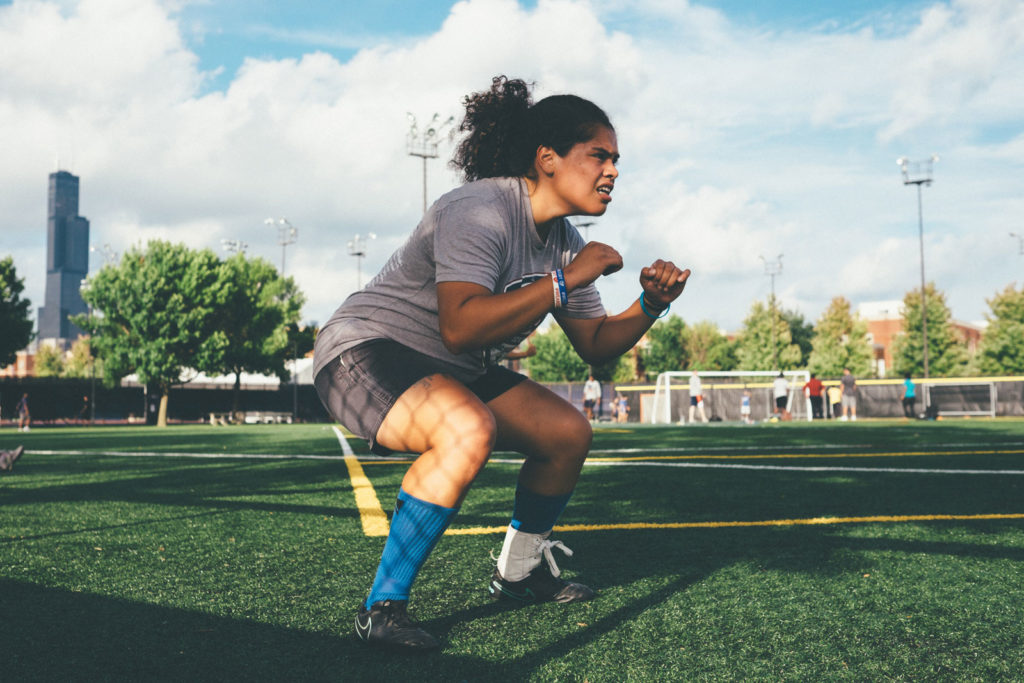Getting Better at Getting Better
Recently I attended the annual CoachSG Symposium in Singapore. It was a world-class event with world-class speakers and content – one of the best coaching education events I’ve ever attended!
A memorable keynote speaker was American Vern Gambetta, owner and founder of Gambetta Sports Training Systems. Dr. Gambetta has consulted with athletes and coaches at all levels, from High School right up to the NCAA, NFL, NBA, MLB, MLS, NHL, and Olympians from several countries. At the Symposium, Gambetta spoke on the topic of “getting better at getting better.” His premise was that anyone seeking excellence – including top athletes and coaches – must approach their craft with this in mind. Gambetta contends that the best coaches succeed because they’re constantly working to improve themselves, and because they are constantly learning how to improve themselves. In short, they are constantly improving their self-improvement: “getting better at getting better.”
His blog post, Musings on Coaching Excellence, summarizes this approach:
Just like athletic excellence, coaching excellence has been a fascination of mine since I was an athlete in high school. I observed teams and individuals that seemed to “over achieve” or “punch above their weight” as the saying goes. The closer I observed and analyzed this, the common denominator was coaching. Coaching makes a difference. Over my 50-year professional career I have seen great coaches, good coaches and indifferent coaches. The great ones share common characteristics. Here is what I have seen.
Technical Expertise – Knowledge of the sport like talent to the athlete is a given. However, I have seen great coaches who are average to slightly above average in this category who have excelled because they made up for [average] in other areas. Technical proficiency can be learned but without a “coach’s eye,” which is the art of coaching, superior technical knowledge is for naught.
Learners – Excellent coaches are lifelong learners. They leave no stone unturned in the pursuit of broader and deeper knowledge to improve as coaches. The great ones go outside their sport and outside of sport to diverse fields to learn.
Vision – They have a clear vision of what they want to achieve and have a thorough understanding of how to turn the vision into action.
Life Balance – Achieving a balance in all aspects of life is the most difficult part of coaching. It is something that must be constantly worked on. It is a juggling act. Not all great coaches achieve this.
Communicator – This is essential, and the characteristic that is shared by great coaches. Understanding that communication is not just talking but listening and observing makes a difference.
Emotionally Intelligent – A basic sensitivity to the athlete’s needs. Being personable without loss of respect of the athletes. Coaching the person not the athlete. Compassion, empathy, and humility are all part of being emotionally intelligent.
Flexible – Having a clearly defined system but knowing when to deviate and adapt to different personnel and environments. Just like the great athlete, great coaches are adaptable rather adapted.
Core Beliefs – A clear core philosophy that is on display in their day-to-day coaching. Not platitudes but actions that have meaning to the athletes.
Change Engineers – Great coaches lead change; they do not react and follow.
Acutely Aware of Strength & Weaknesses – They coach to their strength and understand their weaknesses. They have staff and professional colleagues to complement them.
Persistence/Drive/Determination – These qualities are off the scale in excellent coaches. They never take no for an answer. They will find a way.
Mindset – Just like the athlete, a growth mindset is necessary. They think about possibilities, not roadblocks, obstacles or failures.
Self-Efficacy – There is a confidence in the ability to exert control over their motivation, behavior, and social environment. They lead by example.
I am sure there are many more, but these are the ones I have seen in my experience. Coaching is the difference maker, behind every great athlete and team is a great coach.”
These are wise words spoken from over 50 years of coaching experiences. These values exhibit a clear difference between what the successful coach will do compared to other coaches who seem to struggle.
Growing as a person and as a coach means ‘learning how to learn’ or ‘getting better at getting better’. It’s clear that we can accelerate our athlete’s rates of improvement by simply learning how to teach (coach) better. In over 40 years of coaching, I have yet to meet an athlete or coach who didn’t want to “get better”. Are we working as hard for our athletes as we expect them to work for the team? It doesn’t get more basic than that.
Huddle Up!
Let us know what you think! Share your experiences, stories or thoughts that guide your coaching on our new Paragon Coaching Resources Facebook page. Like our page and track with upcoming articles. It’s always helpful for coaches to hear amazing stories. I look forward to hearing from you soon.
Visit us on Facebook
